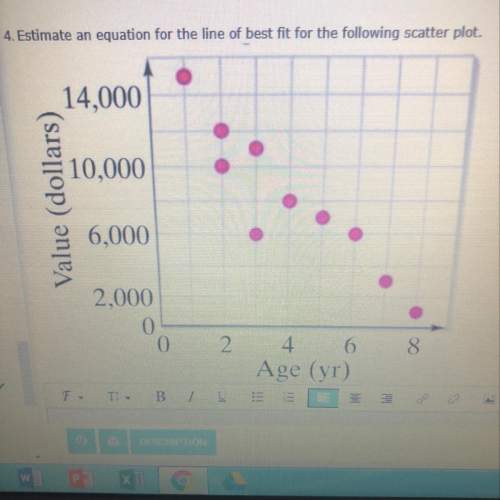
Mathematics, 20.09.2020 15:01 putaprincess16
Suppose that a disease is inherited via a dominant mode of inheritance and that only one of the two parents is affected with the disease. The implications of this mode of inheritance are that the probability is 1 in 2 that any particular offspring will get the disease. 3.30 What is the probability that in a family with two children, both siblings are affected? 3.31 What is the probability that exactly one sibling is affected? 3.32 What is the probability that neither sibling is affected? 3.33 Suppose the older child is affected. What is the probability that the younger child is affected? 3.34 If A, B are two events such that A = {older child is affected}, B = {younger child is affected}, then are the events A, B independent? Suppose that a disease is inherited via an autosomal recessive mode of inheritance. The implications of this mode of inheritance are that the children in a family each have a probability of 1 in 4 of inheriting the disease. 3.35 What is the probability that in a family with two children, both siblings are affected? 3.36 What is the probability that exactly one sibling is affected? 3.37 What is the probability that neither sibling is affected? Suppose that a disease is inherited via a sex-linked mode of inheritance. The implications of this mode of inheritance are that each male offspring has a 50% chance of inheriting the disease, whereas the female offspring have no chance of getting the disease. 3.38 In a family with one male and one female sibling, what is the probability that both siblings are affected? 3.39 What is the probability that exactly one sibling is affected? 3.40 What is the probability that neither sibling is affected? 3.41 Answer Problem 3.38 for families with two male siblings. 3.42 Answer Problem 3.39 for families with two male siblings. 3.43 Answer Problem 3.40 for families with two male siblings. Suppose that in a family with two male siblings, both siblings are affected with a genetically inherited disease. Suppose also that, although the genetic history of the family is unknown, only a dominant, recessive, or sex-linked mode of inheritance is possible. 3.44 Assume that the dominant, recessive, and sex-linked modes of inheritance follow the probability laws given in Problems 3.30, 3.35, and 3.38 and that, without prior knowledge about the family in question, each mode of inheritance is equally likely. What is the posterior probability of each mode of inheritance in this family? 3.45 Answer Problem 3.44 for a family with two male siblings in which only one sibling is affected. 3.46 Answer Problem 3.44 for a family with one male and one female sibling in which both siblings are affected. 3.47 Answer Problem 3.46 where only the male sibling is affected.

Answers: 1


Another question on Mathematics

Mathematics, 21.06.2019 14:00
(hurry! ) which expression is equivalent to the following complex fraction?
Answers: 1

Mathematics, 21.06.2019 16:00
Determine the relationship of ab and cd given the following points
Answers: 2

Mathematics, 21.06.2019 18:30
The lengths of two sides of a right triangle are given. find the length of the third side. round to the nearest tenth if necessary. a) y = 12/5x + 39/5 b) y = 5/12x + 5/39 c) y = 12/5x - 39/5 d) y = 5/12x - 5/39
Answers: 2

You know the right answer?
Suppose that a disease is inherited via a dominant mode of inheritance and that only one of the two...
Questions



English, 08.10.2019 17:30


Physics, 08.10.2019 17:30



Mathematics, 08.10.2019 17:30



Health, 08.10.2019 17:30


Biology, 08.10.2019 17:30

Spanish, 08.10.2019 17:30



English, 08.10.2019 17:30

Mathematics, 08.10.2019 17:30

Mathematics, 08.10.2019 17:30





